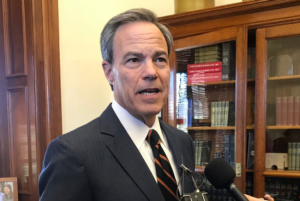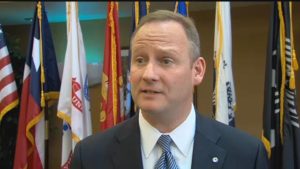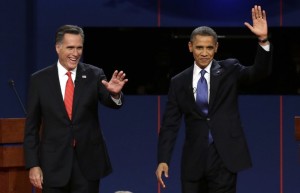Four Price is a friend of mine who I’ve known for about two decades.
Having gotten that disclosure out of the way, you may take my endorsement of the Amarillo Republican lawmaker’s potential candidacy for speaker of the Texas House of Representatives for what it’s worth.
I believe he would make a smashing speaker.
But here’s the important caveat I want to attach to it: I want him to follow the lead set by his good buddy, the current speaker who’s leaving the Legislature after the 2018 election.
Joe Straus, a San Antonio Republican, is quitting politics. He calls the atmosphere too “divisive” and too “partisan.” He sought to run the House of Representatives with a bipartisan touch. He worked with Democrats as well as Republicans.
That sense of political comity cost Straus support among the hard-core Republicans who believe he had become a Republican In Name Only, a dreaded RINO.
I don’t sense that Price, also a Republican, believes that of his friend and colleague. I believe it would be pure folly for Price to buckle under the pressure that some of the right-wingnuts are going to exert.
One of them happens to run the Texas Senate. Lt. Gov. Dan Patrick locked horns with Speaker Straus over that damn Bathroom Bill that died a well-deserved death in this summer’s special legislative session. The bill would have required transgender people to use public restrooms in accordance to their birth certificate gender. Patrick wanted the bill passed into law; Straus resisted, earning him the scorn of county GOP organizations, including the Randall County Republican Party, which resolved to support someone else for speaker in the 2019 session.
So, to my friend Four Price, I ask only this: If you’re going to run for speaker, please resist the temptation to tilt too far to the right. Do not forsake the millions of Texans — such as yours truly — who believe that moderation is critical to effective governing.





